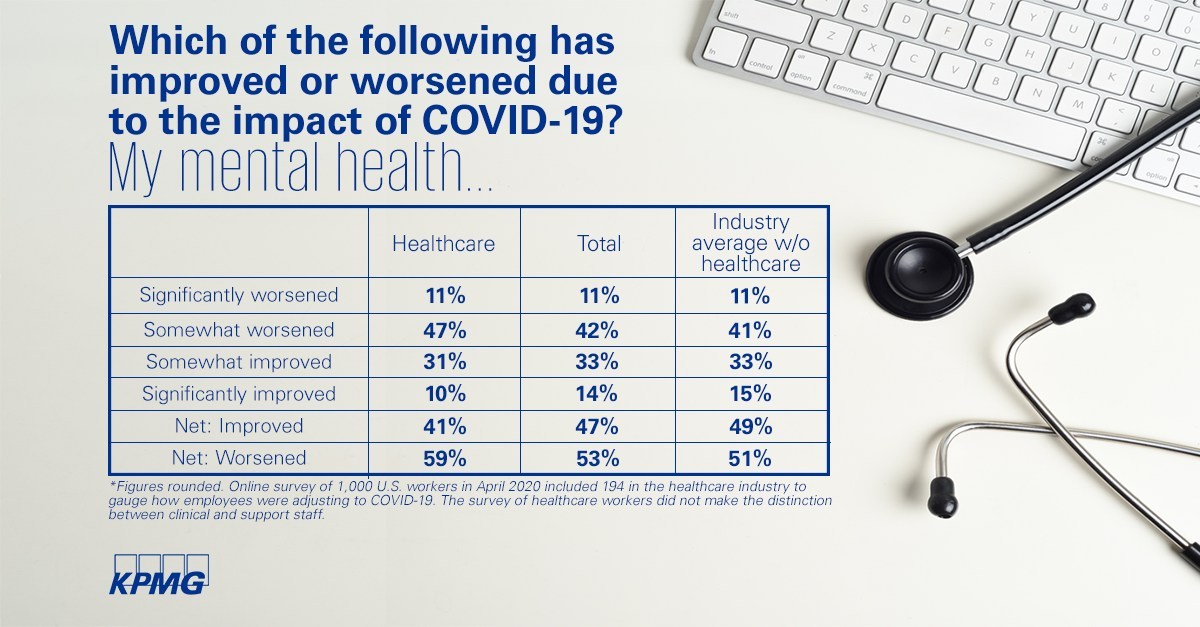Nearly three out of five healthcare workers (59%) say COVID-19 has worsened their mental health, representing an eight percentage point gap when compared with other industries (51%), a pulse survey of 1,000 workers by KPMG LLP, the U.S. audit, tax and advisory firm, found.
Despite the stresses in healthcare, the survey also found greater connections, collaboration, and higher quality of their work among 194 workers surveyed from that sector in April.
“COVID-19 is a career-defining event for many healthcare professionals, given the severity of the condition, the necessary protocols to prevent coronavirus from spreading, and that many have families at home that are dealing with the effects of social distancing,” said Ashraf Shehata, national sector leader for healthcare & life sciences at KPMG LLP, the U.S. audit, tax and advisory firm.

Nearly three out of five healthcare workers (59%) say COVID-19 has worsened their mental health, representing an eight percentage point gap when compared with other industries (51%), a pulse survey of 1,000 workers by KPMG LLP, the U.S. audit, tax and advisory firm, found. Despite the stresses in healthcare, the survey also found greater connections, collaboration and higher quality of work among 194 workers surveyed from that sector in April.
The survey also found:
- 59% of healthcare workers report their mental health has worsened.
- Two-thirds of healthcare workers say their level of engagement with their supervisor/team (66%) and co-worker relationships have improved (66%).
- While 70% of healthcare workers report their quality of work has improved, only 56% say their level of productivity has improved.
- Over half (57%) of healthcare workers say their level of engagement with company culture has improved.
- Half (54%) of healthcare workers say their work/life balance has improved.
- Three fourths (76%) of healthcare workers report their team is collaborating better.
Compared with the national averages in the survey, healthcare workers are significantly more likely to not be concerned about reduced pay (37% vs 52%), losing their job (43% vs 56%), technology replacing their job (56% vs 71%), and the future of their industry (44% vs 62%). “Healthcare workers tend to band together when times are difficult and deliver upon the task at hand, which is providing the highest quality care to the best of their abilities,” Shehata said. “The best healthcare organizations pride themselves on creating a great place to work because they realize that an appreciated worker is valuable to providing the best patient experience.”





